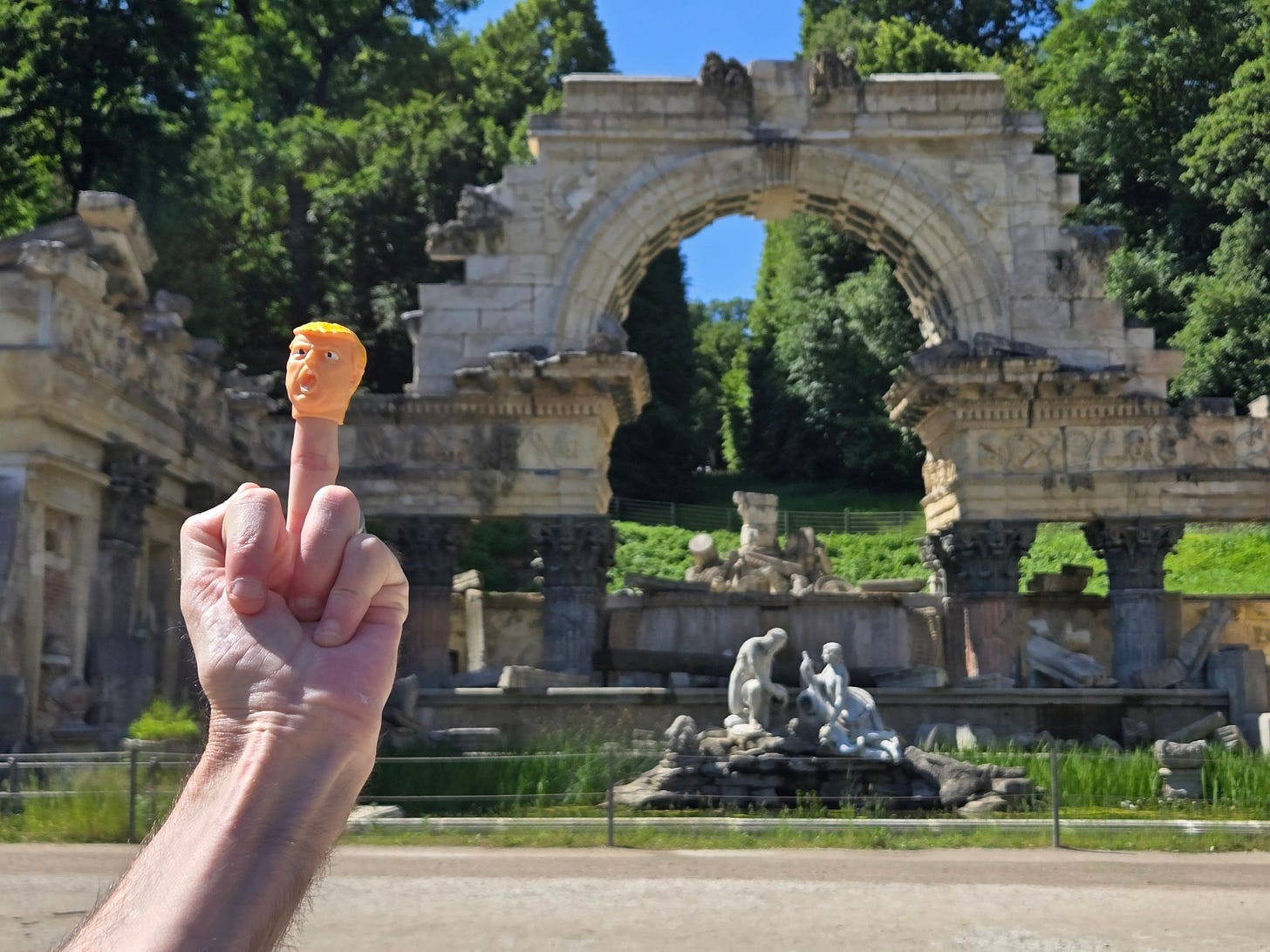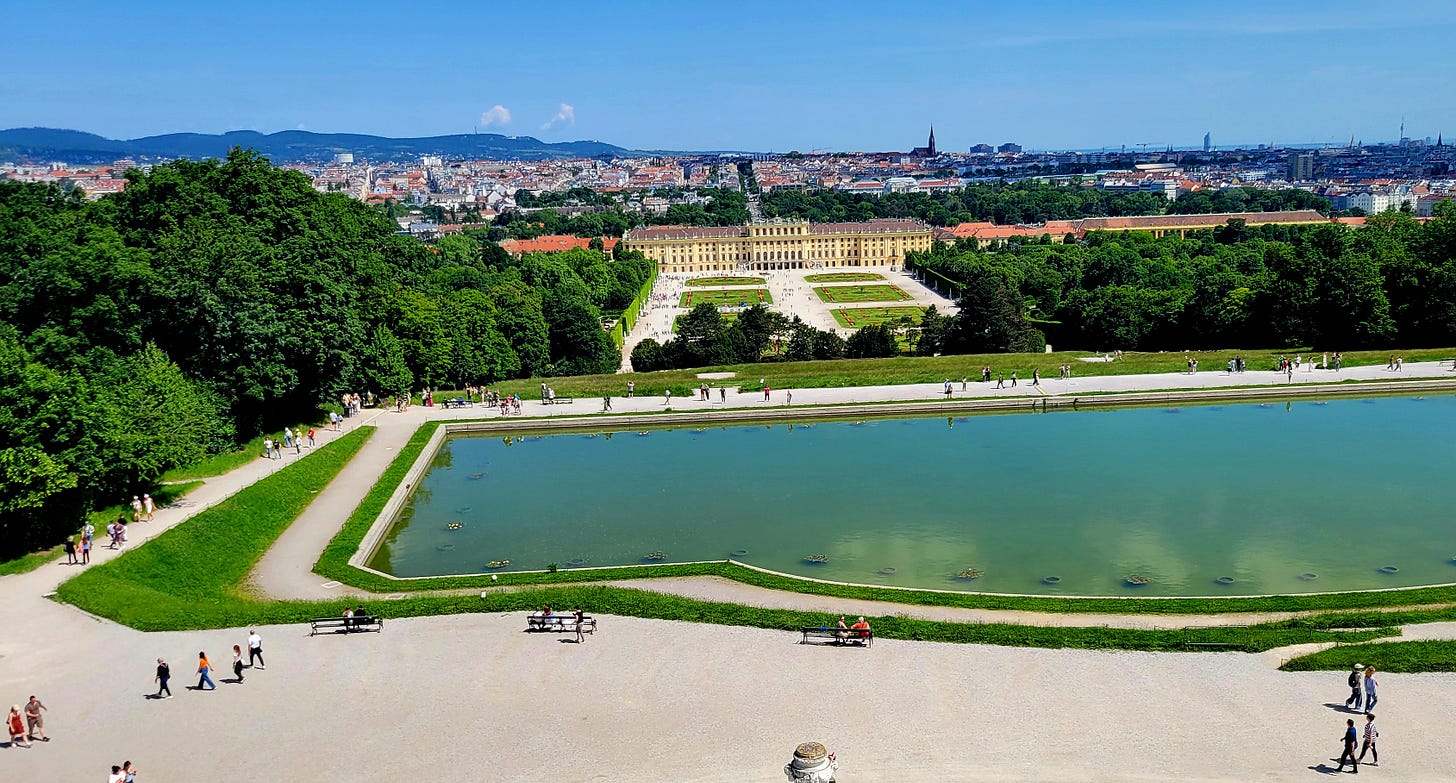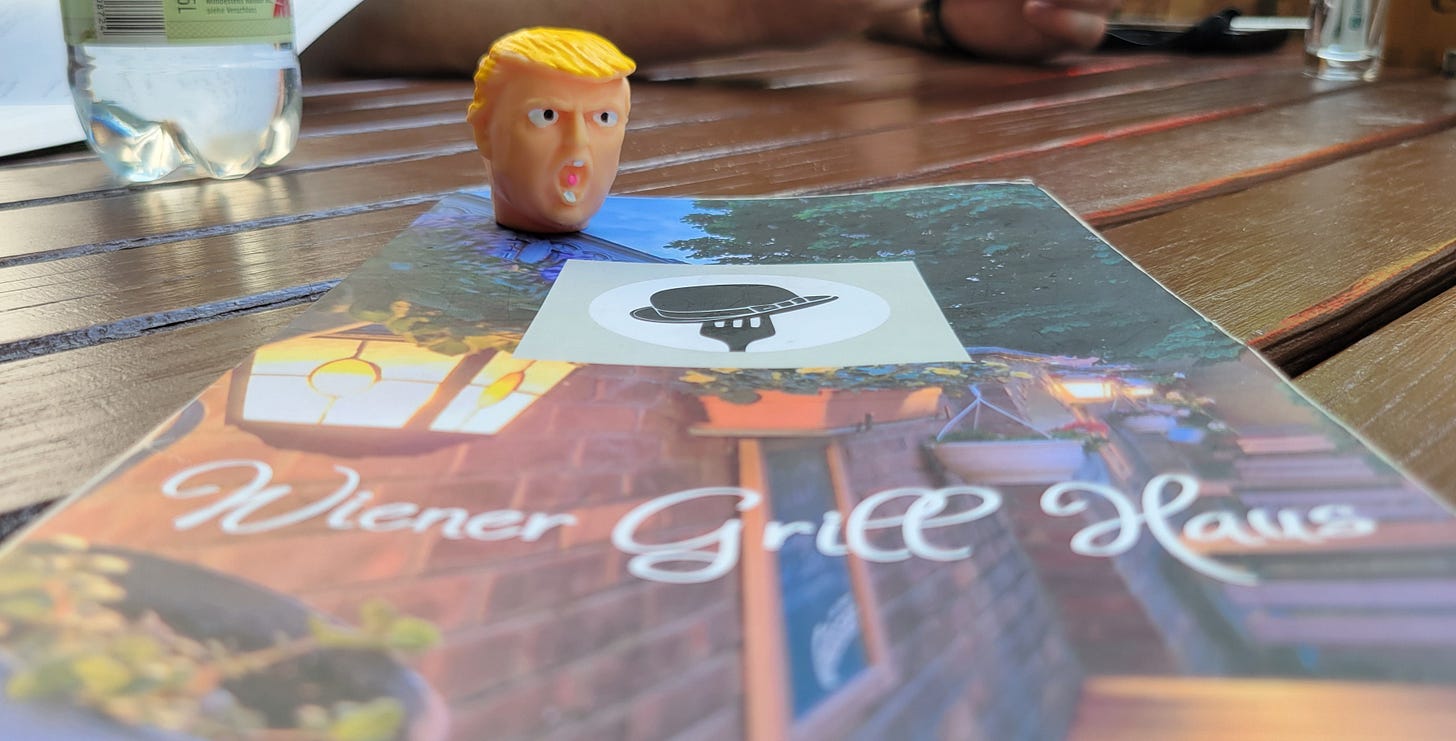CHAPTER 6: Krasnov Visits the Habsburgs
FOLLOWED BY LUNCH AT WIENER GRILL HAUS
There was no shade left in Vienna. The sun beat down like it had been hired by the Kremlin. We’d been walking for ten minutes when it became clear: Schönbrunn Palace wasn’t just “a nice place to visit.” It was an ordeal. A sprawling imperial fever dream that stretched so far into the distance, we weren’t sure if the end was real or just a mirage shimmering in the heat haze. The kind of place where royalty once roamed and peasants once pissed themselves if they got too close.
We arrived on foot, like fools, melting on the pavement while camera-toting tourists spilled out of Ubers and tour buses with matching hats and water bottles clipped to their belts. We had no hats. No sunscreen. Just a backpack, a dying phone battery, and a finger puppet of Donald Trump.
Let’s clarify that: a rubber Trump head with squinty eyes, orange-tinted skin, an open-mouthed scowl, and a weirdly squashed comb-over. No googly eyes. No body. Just a disembodied head that fit snugly over your finger—especially your middle one. We called him Krasnov, in honor of the KGB codename Alnur Mussayev had claimed was once assigned to Trump during his alleged recruitment by the KGP. It was a joke at first. A prop. Something to ease the tension of a trip laced with paranoia, history, and dead drops. But somehow, holding it up in front of imperial palaces made it feel less like satire and more like prophecy.
Because if Mussayev was right… if Donald Trump really was recruited by Soviet intelligence during the Cold War, then this wasn’t a puppet. It was a symbol. A rubber monument to the greatest kompromat coup in Russian intelligence history. And we were walking it through the front gates of an empire that had already collapsed once under the weight of delusion.
The palace itself is a weapon. Seventeen hundred rooms. Baroque everything. Gold ceilings. White stone. Sculpted hedges that looked like they were manicured by serfs with tweezers. We walked through the courtyards, past fountains and frescoes, toward the rise in the distance — that strange structure on the hilltop, the Gloriette. Built to commemorate the Habsburgs’ military glory, it now overlooks a city where empires come to die quietly. We hiked up the gravel path beside the reflecting pool, sweating like traitors under interrogation lights.
At the top, the view was absurd. Vienna unfolded below us like a stage set: uniform rooftops, old cathedrals, a few cranes trying to pretend the modern world had a place here. We took out the puppet and posed it near the pond. A group of schoolkids giggled. One man muttered something in French and took a photo of us. We gave the puppet a stern look, as if we waiting for it to confess.
It didn’t.
Back down the hill, we found refuge at a nearby restaurant with shaded outdoor seating — the Wiener Grill Haus, which sounds like a euphemism but was exactly what we needed: fried things, cold drinks, and a place to regroup. I ordered chicken fingers and fries. Lukas went with the Wiener Schnitzel. We both drank our beer like it was being rationed. The puppet sat between us on the table, staring at nothing.
There was a moment where we stopped laughing.
Not long. Just long enough to feel it: the weight of what we were chasing. Alnur hadn’t reached out as we had hoped. Not yet. There was no confirmation. No meeting. Just the article of ours that he had shared months ago. I started to lose hope of ever meeting Mussayev.
We sat there in the heat, surrounded by tourists, beer sweating in our hands, chicken disappearing fast, a rubber Trump head gazing blankly across the patio. We were in Vienna, at the edge of the empire. And Krasnov had come with us.
We didn’t know what was real. But we knew the view was beautiful.
And if the empire had fallen once before, who were we to think ours would survive?





Nice! 👍